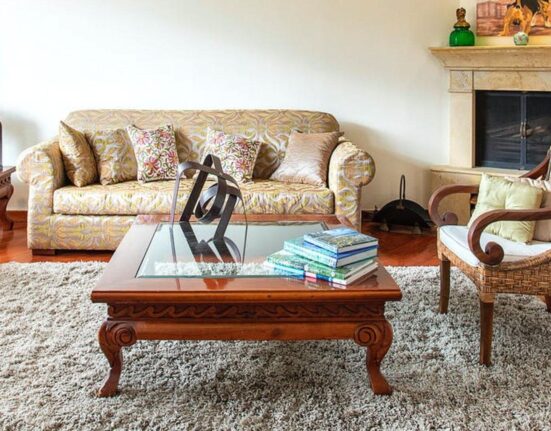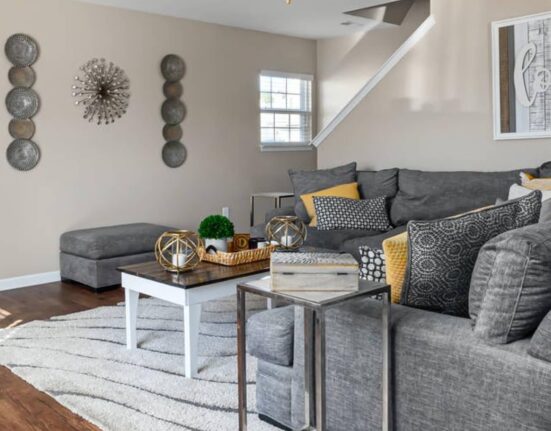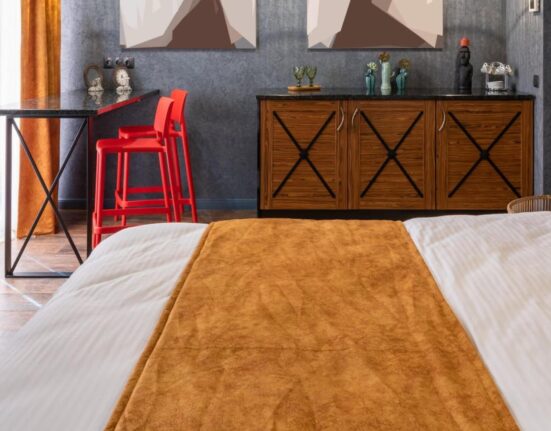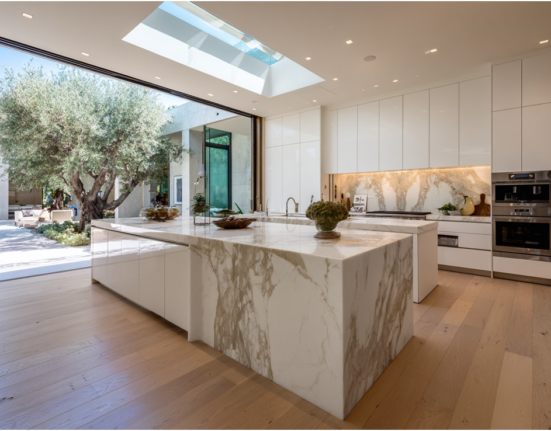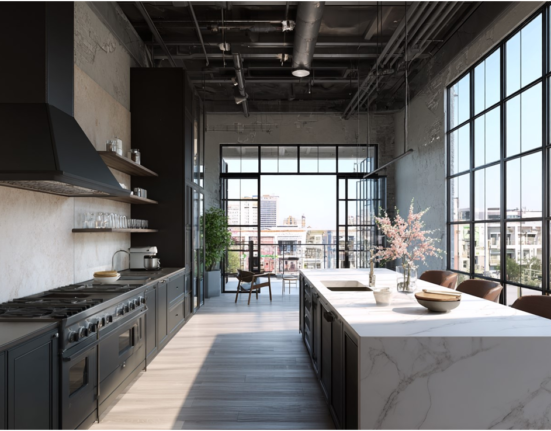Designing a living space that is both functional and stylish can transform your home into a place of comfort and beauty.
Whether you’re starting from scratch or updating an existing space, understanding the balance between aesthetics and practicality is key.
By incorporating expert design tips and focusing on your unique preferences, you can create a space that reflects your personal style while remaining usable and organized.
Understanding Your Space
The first step in creating a functional and stylish living space is understanding the area you’re working with. Whether you’re working with a large open-plan living room or a more compact, intimate space, the layout of the room should cater to your daily needs.
For smaller areas, maximizing space is crucial, which can be achieved through multifunctional furniture and clever storage solutions.
Consider how you move through the room and which areas you use most frequently. By identifying high-traffic areas, you can arrange furniture in a way that promotes natural movement and flow.
When selecting furniture, opt for pieces that complement the size of the room—large, bulky sofas may overwhelm a small space, while a more streamlined design will maintain a sense of openness.
Lighting is another essential component of a well-designed living space. Natural light can make any room feel larger and more welcoming, so it’s important to consider window placement and how you can enhance it.
In areas where natural light is limited, strategically placed lamps and overhead fixtures can help brighten the space and make it feel more inviting.
Collaborating with Design Professionals
Once you have a basic understanding of your space, it’s time to consider how to bring your vision to life. Collaborating with a professional architect or designer can take your ideas to the next level.
For instance, professionals from ralstonarchitects.com bring years of expertise in design, focusing on listening to their client’s thoughts and ideas.
They interpret these ideas into a singular vision that reflects your passion, character, and style.
Working with professionals guarantees that your space is aesthetically pleasing and also functional. They can provide insights into optimizing your layout, selecting materials, and incorporating design elements you might not have considered.
With their guidance, you’ll achieve a space that is cohesive and personalized to your lifestyle.
Choosing a Color Palette
One of the most impactful elements in any living space is the color palette. The right choice of colors can set the tone for the entire room and influence how people feel when they enter it. Neutral colors like whites, grays, and soft pastels create a calm and timeless environment, which is perfect for a minimalist style. Bold colors, on the other hand, can make a statement and add personality to the space.
When choosing your color palette, consider the purpose of the room and the mood you want to evoke. Living rooms, which are spaces for relaxation and socialization, often benefit from warmer tones that create a cozy and welcoming atmosphere.
However, if you’re aiming for a modern, sleek look, cooler shades like navy or charcoal might be more appropriate.
Balancing color throughout the room is also important. While accent walls or bold furniture pieces can add a pop of color, avoid overloading the room with too many contrasting shades. Instead, aim for harmony by selecting a base color and complementing it with subtle accents that tie the room together.
Furniture Selection: Prioritizing Comfort and Functionality
Choosing the right furniture is about more than aesthetics; it’s about how you use the space. While it may be tempting to choose pieces based purely on style, it’s crucial to think about how comfortable and functional they are in your day-to-day life.
Start with your key pieces—the sofa, coffee table, and chairs. These are the items that will likely see the most use, so they should look good andalso serve a practical purpose. If you frequently entertain guests, consider modular seating that can be rearranged to accommodate larger groups.
For those with limited space, choosing furniture with built-in storage, such as ottomans or coffee tables with hidden compartments, can help keep the room clutter-free.
Textures also play a significant role in the feel of a room. Mixing different materials, such as leather, wood, and fabrics, can create a more dynamic and layered look. Additionally, using throws, cushions, and rugs can add softness and warmth to the space, making it more inviting.
Incorporating Personal Touches
Your home should be a reflection of your personality, so don’t shy away from incorporating personal touches that make the space uniquely yours.
This could be anything from displaying family photographs and artwork to showcasing meaningful souvenirs from your travels. These small additions bring character and warmth to the space, making it feel like home.
Artwork is an excellent way to introduce your personality into a room while also adding color and visual interest. Large statement pieces can serve as focal points, drawing the eye to a particular area of the room, while smaller, grouped artworks can create a gallery-like effect.
Plants are another way to add life and personality to your living space, as they bring a natural element indoors,help purify the air, and enhance the overall ambiance of the room. Depending on the size and lighting of your space, you can choose from a variety of plants, from tall potted trees to smaller succulents.
Balancing Style with Practicality
While style is important, practicality should never be overlooked. A beautifully designed living space is pointless if it doesn’t suit your needs. Consider how you live in the space and make decisions that reflect your lifestyle. If you have young children or pets, opt for durable, easy-to-clean fabrics that can withstand wear and tear.
In terms of layout, think about how you use the room on a daily basis. If you work from home, consider incorporating a desk or dedicated workspace into your living room. This doesn’t mean sacrificing style—many contemporary desks and workstations are designed to blend seamlessly with other furniture, ensuring your space remains cohesive.
Creating a Timeless Design
Design trends come and go, but creating a living space that feels timeless is about selecting pieces that will stand the test of time. Avoid overly trendy furniture or décor that may feel dated within a few years. Instead, focus on classic pieces with clean lines and neutral tones that can easily be updated with new accessories or accent pieces.
By following these expert tips, you can create a functional and stylish living space that reflects your personality and meets your practical needs. From collaborating with design professionals to incorporating personal touches, your living space will be a place you enjoy for years to come.



